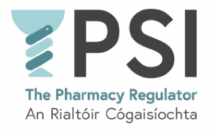Building pharmacy capacity as part of a future integrated healthcare system

Joanne Kissane, Registrar and Chief Officer of the PSI – the Pharmacy Regulator, reflects on her first year in the role and discusses work that is underway, aligned to strategic organisational commitments, to ensure pharmacy is equipped to play a full role as part of a future integrated healthcare system.
Pharmacy in Ireland is constantly evolving, and our work needs to account for the changing nature of pharmacy practice and services provided by pharmacists. We are committed to ensuring the public has access to trusted pharmacy services and that the PSI, as the regulator, makes a clear and demonstrable contribution to the availability and quality of those services.
We have consistently seen an increase in the number of pharmacists registered with the PSI, currently sitting at over 7,300, but there are broader challenges in recruitment and retention. As our population continues to grow, the need to plan for the right care, by the right healthcare professionals, at the right time, becomes more pertinent. Planning for the role that pharmacy will play is vital to ensuring the necessary governance structures and policies are in place. It also reflects the PSI commitment to align with the vision of Sláintecare, as part of a future integrated health system.
Central to this commitment is the need to ensure a sustainable supply of pharmacists for patient-facing settings. In September 2023, we launched the Workforce Intelligence Report. Commissioned by the PSI and developed by Grant Thornton, it is the first time a baseline view of the pharmacist workforce has been established. This project was committed to in our corporate strategy covering 2021 to 2024, Assuring Public Trust in Pharmacy Through Effective Regulation, and is the culmination of a significant body of work undertaken in collaboration with a range of multi-disciplinary pharmacy and healthcare stakeholders.
Our motivation to examine this issue was multi-factorial and driven by an absence of any previous national strategic workforce planning initiatives for pharmacy in Ireland. Despite the increase in pharmacists registered with the PSI, we have also observed emerging trends relating to difficulties with the retention and recruitment of pharmacists within patient-facing roles. Furthermore, the World Health Organization (WHO) estimates that there will be a shortfall of over 10 million healthcare workers globally by 2030. The WHO attributes the predicted shortfall to retention and recruitment challenges, rising healthcare demands, more complex health conditions and more challenging work environments.
The report identified emerging risks and mitigating actions for the continued supply of pharmacists in patient-facing settings, founded on evidence-based research, combined with data from a workforce survey and focus group conducted with pharmacists and final-year pharmacy students. The development of a national strategic workforce plan for healthcare that incorporates pharmacy, and is informed by relevant and timely data, is a key priority which must be undertaken with involvement from pharmacy and health stakeholders as part of a collaborative approach.
The recent report by the Higher Education Authority on building capacity in the higher education system is therefore timely. We were pleased to participate in this process in the context of our regulatory role in setting standards for pharmacy education and training at undergraduate and postgraduate levels. If the recommendations are implemented, there is the potential to create an additional 190 undergraduate places for pharmacy students annually which will make an important contribution to a sustainable supply of pharmacists, while lessening pressure on aspiring undergraduate students.
There is a strong ambition among pharmacists to play an expanded role in a future integrated health system. The Workforce Intelligence Report findings showed over 90 per cent of pharmacists indicated a willingness and appetite to expand their scope of practice. The establishment of the Expert Taskforce to support the expansion of the role of pharmacists by the Minister for Health in July is significant. The Taskforce, comprised of representatives from across health, pharmacy, and education, is charged with examining ways in which pharmacists can expand upon their present scope of practice.

“Over 90 per cent of pharmacists indicated a willingness and appetite to expand their scope of practice.”
The PSI’s involvement in the Taskforce further aligns with our strategic objective to facilitate evidence-based practice by pharmacists where this is required by patient need and public policy. The first recommendation of the Taskforce to be progressed, announced by the Minister for Health in November 2023, recommends pharmacists in Ireland be enabled to extend the validity period of a given prescription from a period of six months up to a maximum of 12 months if, in their professional judgement, it is safe and appropriate to do so. This new measure will take effect in March 2024, allowing time for the completion of the necessary legislative changes and for relevant guidance and educational supports to be put in place. This recommendation will play a significant role in alleviating pressure in the health system, improving patient access and leading to better patient outcomes. We look forward to continuing to participate in the multi-stakeholder taskforce in 2024.
As the regulatory body charged with overseeing pharmacists and pharmacy services, it is incumbent upon us at PSI to assess the relevance of the current legislative framework that underpins the delivery of pharmacy care. In line with our regulatory remit concerning the protection of public health and safety, we continue to press for the need to reform the primary legislation by which we are governed – the Pharmacy Act 2007. In 2023, we published a position paper on the need for legislative reform. In 2024, and as part of our next corporate strategy, we will engage with the Department of Health to progress this work so that legislation reflects the changing nature of pharmacy care and its operating environment.
Reflecting on my first year in the role, it is particularly pleasing to see the commitment towards progressing the first Taskforce recommendation, which we are confident will make a clear and demonstrable contribution to the quality of healthcare provided to patients. Equally, the Workforce Intelligence Report marks a new beginning for pharmacy workforce planning. As I look to the year ahead, I am excited by the significant work underway to address the challenges and capitalise on the opportunities across pharmacy practice in Ireland.
W: www.psi.ie






